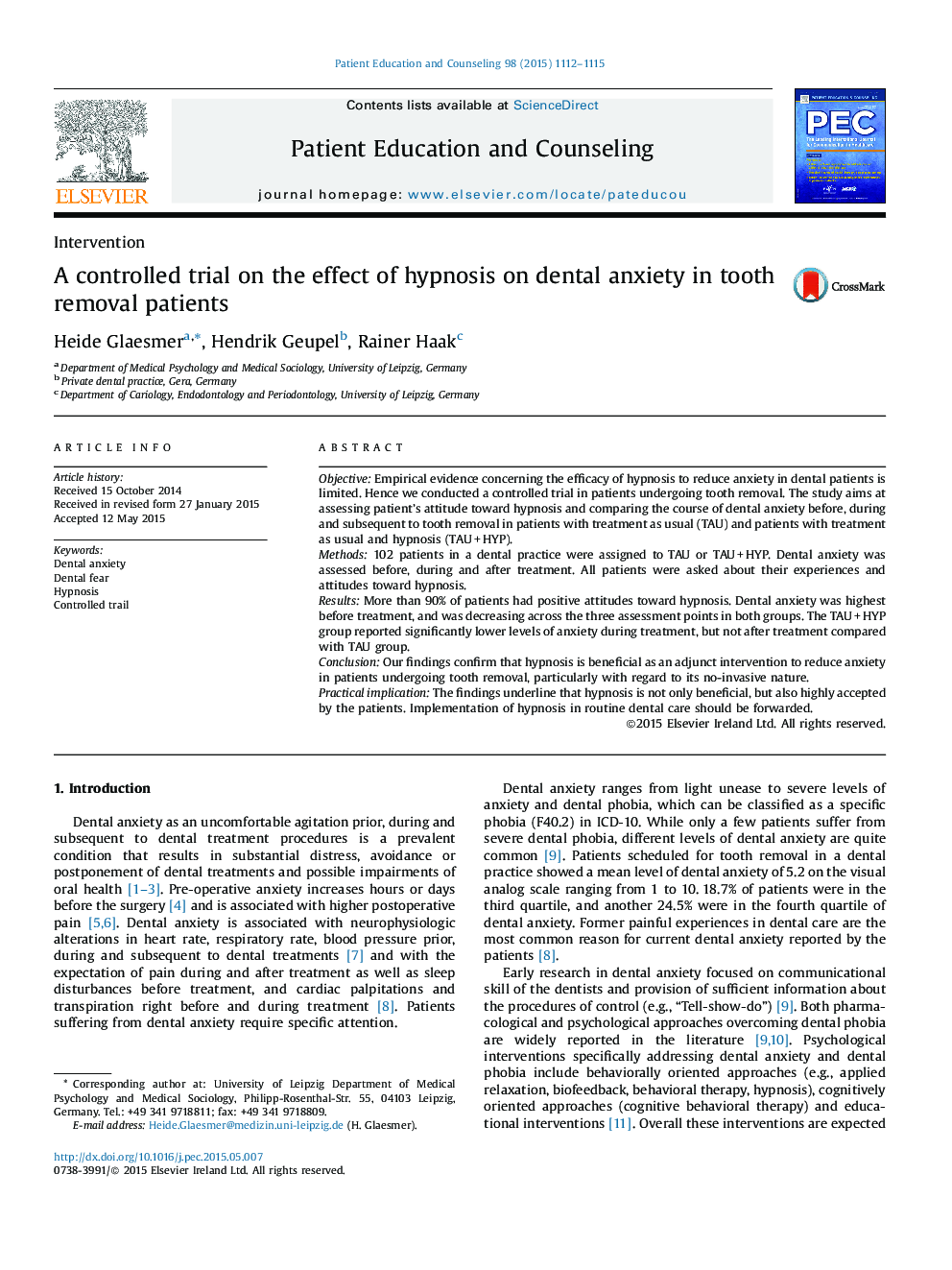| Article ID | Journal | Published Year | Pages | File Type |
|---|---|---|---|---|
| 3813191 | Patient Education and Counseling | 2015 | 4 Pages |
•More than 90% of the patients in dental practice have positive attitudes toward hypnosis.•Dental anxiety was highest right before treatment, and was decreasing during and after treatment.•Adjunct hypnosis in tooth removal reduces anxiety during treatment.
ObjectiveEmpirical evidence concerning the efficacy of hypnosis to reduce anxiety in dental patients is limited. Hence we conducted a controlled trial in patients undergoing tooth removal. The study aims at assessing patient’s attitude toward hypnosis and comparing the course of dental anxiety before, during and subsequent to tooth removal in patients with treatment as usual (TAU) and patients with treatment as usual and hypnosis (TAU + HYP).Methods102 patients in a dental practice were assigned to TAU or TAU + HYP. Dental anxiety was assessed before, during and after treatment. All patients were asked about their experiences and attitudes toward hypnosis.ResultsMore than 90% of patients had positive attitudes toward hypnosis. Dental anxiety was highest before treatment, and was decreasing across the three assessment points in both groups. The TAU + HYP group reported significantly lower levels of anxiety during treatment, but not after treatment compared with TAU group.ConclusionOur findings confirm that hypnosis is beneficial as an adjunct intervention to reduce anxiety in patients undergoing tooth removal, particularly with regard to its no-invasive nature.Practical implicationThe findings underline that hypnosis is not only beneficial, but also highly accepted by the patients. Implementation of hypnosis in routine dental care should be forwarded.
